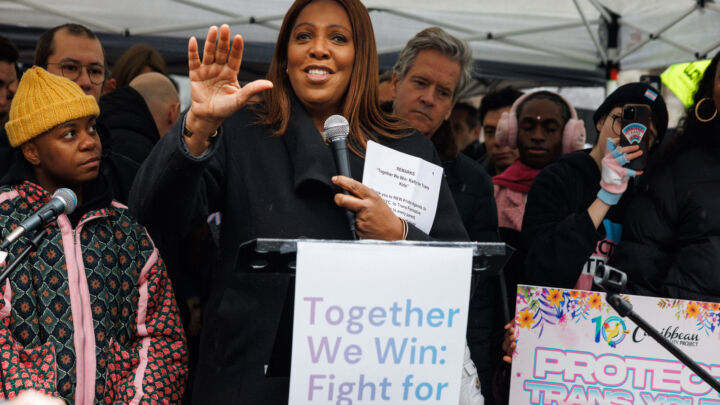Take That tax row: issue avoidance

Want unlimited, ad-free access? Become a spiked supporter.
The periodic obsession among Britain’s ruling elite with so-called tax avoidance, that is, legally reducing the amount of tax for which you’re liable through recondite investment schemes and the like, has been one of the most tedious, petty and distracting refrains of the current economic crisis. Over the past few years, we’ve seen Starbucks, Google and Amazon roasted in parliament for their cheeky tax arrangements. And we’ve seen comedian Jimmy Carr singled out for his money-grabbing by prime minister David Cameron, who took time out of a diplomatic visit to Mexico to chastise the pan-faced funster. Add to this the wacktivists at UK Uncut, who spent much of 2011 superglued to the windows of tax-lite companies, and it does look as if tackling tax avoidance has become a veritable crusade for politicians, pundits, and HMRC’s student wing at UK Uncut.
This week, the political and media class’s bowels of sanctimony opened over three members of blokeband Take That, including their chief cardigan wearer, Gary Barlow, who were all adjudged to have been participating in an ‘aggressive’ tax-avoidance scheme. The Times’s columnist Hugo Rifkind was livid: ‘This was a deliberate, conscious attempt to deprive the state of revenue. It wasn’t just wrong. It was bad. You shouldn’t do it. And if you do, you should feel guilty as hell.’ Janet Street Porter went for low-wattage outrage in the Daily Mail: ‘[Barlow’s millions] could pay for free school dinners. It could help refurbish classrooms. It would buy back playing fields and pay for musical instruments.’ And, over in the Palace of Westminster, Labour’s Margaret Hodge, the chair of the Commons Public Accounts Committee, reckoned Barlow should hand back his OBE as a mark of contrition.
Given the volume of self-righteous muck being hurled in the direction of Barlow and pals, you could be forgiven for thinking they must have killed a few hard-working GPs, burnt down community centres, and destroyed 100 kidney dialysis machines as part of some boybandish bacchanalia. But, no, all they had done was find a way to reduce the amount of tax they were due to pay the British state.
There is nothing to admire or to praise in the actions of Barlow and the hundreds of others who were involved in the same scheme. It was a pragmatic, self-interested move. But at the same time, there was nothing immoral about what they did, and certainly nothing deserving of the virtual rifle sights now trained on them. A hard-up George Orwell once wrote, ‘No one is patriotic about taxes’. In other words, whether or not you pay what the state demands says nothing about your commitment to your nation. Likewise, whether or not you pay what the state demands says nothing about whether you are a good or bad person. After all, that is what the current tax-avoidance obsessives seem to believe: that how much you chuck the state to spend, not just on ‘good’ stuff like hospitals, but on anything, from cruise missiles to Tamiflu, is an index of your moral being.
The problem is not taxation, or even the much publicised tax gap. No, the real problem here is the petty, mealy-mouthed focus on taxation, one encouraged by grandstanding politicians and moralising commentators who enjoy the bash-the-rich glow that accompanies every high-profile attack on wealthy slebs and portly bankers. Of course, there is always more money that could be taxed out of people and companies. But the real way to improve tax revenues is to increase the volume of wealth to be taxed, to grow the economy. And it’s that which should be the true focus of the taxation discussion: economic growth, not wealthy individuals and companies.
Condemning tax avoiders, even if one of them wrote the execrable ‘Babe’, is no substitute for a genuine vision for economic growth.
Tim Black is deputy editor of spiked.
£1 a month for 3 months
You’ve hit your monthly free article limit.
Support spiked and get unlimited access.
Support spiked – £1 a month for 3 months
spiked is funded by readers like you. Only 0.1% of regular readers currently support us. If just 1% did, we could grow our team and step up the fight for free speech and democracy.
Become a spiked supporter and enjoy unlimited, ad-free access, bonus content and exclusive events – while helping to keep independent journalism alive.
———————————————————————————————————————————–
Exclusive January offer: join today for £1 a month for 3 months. Then £5 a month, cancel anytime.
———————————————————————————————————————————–
Monthly support makes the biggest difference. Thank you.









Comments
Want to join the conversation?
Only spiked supporters and patrons, who donate regularly to us, can comment on our articles.